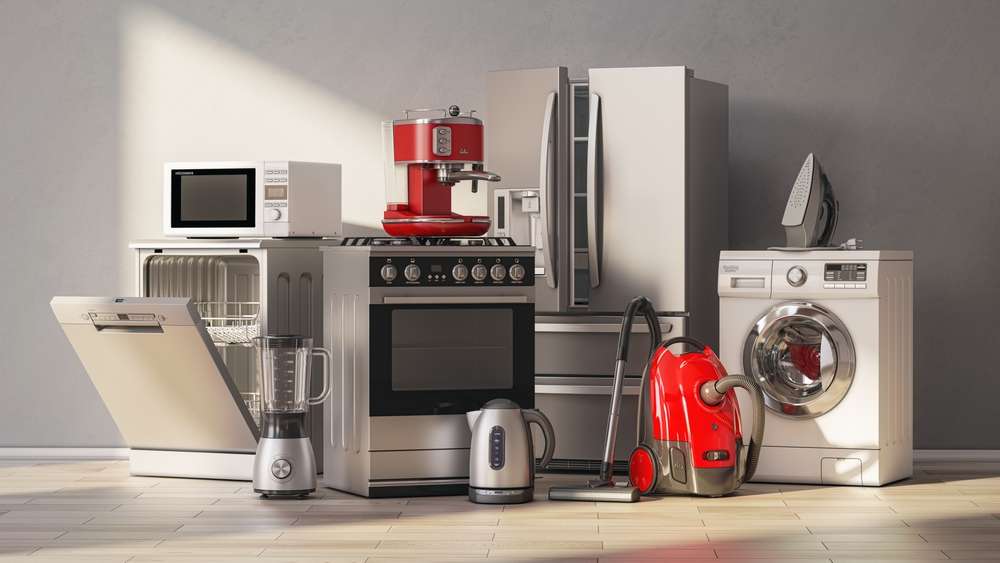The Ultimate Guide to Home Appliances: New vs. Used
Home appliances are essential components of modern living, making our daily tasks easier and more efficient. Whether you're setting up a new home or looking to upgrade your existing appliances, choosing between new and used options can be a significant decision. This comprehensive guide will explore the world of home appliances, comparing new and used options to help you make informed choices for your household needs.

What are the most common types of home appliances?
Home appliances come in various forms, each serving specific purposes in our daily lives. The most common types include:
-
Kitchen appliances: Refrigerators, ovens, dishwashers, microwaves, and cooktops
-
Laundry appliances: Washing machines and dryers
-
Heating and cooling appliances: Air conditioners, heaters, and fans
-
Cleaning appliances: Vacuum cleaners and steam mops
-
Small appliances: Toasters, coffee makers, blenders, and food processors
These appliances play crucial roles in keeping our homes comfortable, clean, and functional. Understanding the different types can help you prioritize which appliances are most essential for your household.
What are the advantages of buying new appliances?
Purchasing new appliances offers several benefits that make them an attractive option for many consumers:
-
Latest technology: New appliances often come with the most up-to-date features and energy-efficient technologies.
-
Warranty coverage: Most new appliances include manufacturer warranties, providing peace of mind and protection against defects.
-
Energy efficiency: Newer models are typically more energy-efficient, potentially leading to lower utility bills over time.
-
Customization options: When buying new, you can often choose specific features, colors, and designs to match your preferences.
-
Reliability: New appliances are less likely to break down or require repairs in the short term.
While new appliances may have a higher upfront cost, their long-term benefits and reliability can make them a worthwhile investment for many homeowners.
What are the benefits of opting for used appliances?
Used appliances can be an excellent choice for budget-conscious consumers or those looking for specific models no longer in production. Some advantages of buying used appliances include:
-
Cost savings: Used appliances are generally significantly cheaper than their new counterparts.
-
Environmental impact: Purchasing used appliances helps reduce waste and extends the life of existing products.
-
Availability of discontinued models: You may find specific models or features that are no longer available in new appliances.
-
Potential for high-end brands at lower prices: Used appliances allow you to access premium brands at more affordable prices.
-
Immediate availability: Used appliances are often ready for immediate pickup or delivery, unlike some new models that may have long lead times.
When considering used appliances, it’s essential to thoroughly inspect the item, check its age and condition, and inquire about any remaining warranty coverage.
How can you ensure the quality of used appliances?
When shopping for used appliances, taking the following steps can help ensure you’re getting a quality product:
-
Inspect the appliance in person: Look for signs of wear, damage, or poor maintenance.
-
Ask about the appliance’s history: Inquire about its age, previous owners, and any repair work done.
-
Test the appliance: If possible, ask to see the appliance in operation to check for any issues.
-
Check for energy efficiency: Look for energy rating labels and compare them to newer models.
-
Research the model: Look up reviews and common issues for the specific make and model you’re considering.
-
Consider purchasing from reputable dealers: Some secondhand appliance stores offer limited warranties or return policies.
By taking these precautions, you can increase your chances of finding a reliable used appliance that meets your needs and budget.
What factors should you consider when choosing between new and used appliances?
When deciding between new and used appliances, consider the following factors:
-
Budget: Determine how much you’re willing to spend and compare prices between new and used options.
-
Long-term costs: Factor in potential energy savings from newer, more efficient models versus the lower upfront cost of used appliances.
-
Features: Decide which features are essential for your needs and whether they’re available in used models.
-
Lifespan: Consider the expected lifespan of the appliance and how long you plan to use it.
-
Warranty: Evaluate the importance of warranty coverage and after-sales support.
-
Environmental impact: Weigh the environmental benefits of extending an appliance’s life versus the potential energy savings of newer models.
By carefully considering these factors, you can make an informed decision that balances your budget, needs, and values.
How do prices compare between new and used appliances?
When comparing prices between new and used appliances, it’s important to consider various factors such as brand, model, age, and condition. Here’s a general comparison of prices for some common household appliances:
| Appliance Type | New Price Range | Used Price Range | Potential Savings |
|---|---|---|---|
| Refrigerator | £400 - £2,000+ | £100 - £800 | 50% - 75% |
| Washing Machine | £200 - £1,000+ | £50 - £400 | 60% - 80% |
| Dishwasher | £200 - £800+ | £50 - £300 | 50% - 75% |
| Oven/Cooker | £300 - £1,500+ | £80 - £500 | 55% - 70% |
| Microwave | £50 - £300+ | £20 - £100 | 40% - 70% |
Prices, rates, or cost estimates mentioned in this article are based on the latest available information but may change over time. Independent research is advised before making financial decisions.
As shown in the table, used appliances can offer significant savings compared to new models. However, it’s crucial to balance these potential savings against factors such as energy efficiency, warranty coverage, and expected lifespan when making your decision.
The choice between new and used appliances ultimately depends on your specific needs, budget, and preferences. By carefully considering the factors discussed in this guide, you can make an informed decision that best suits your household requirements and financial situation.
The shared information of this article is up-to-date as of the publishing date. For more up-to-date information, please conduct your own research.




